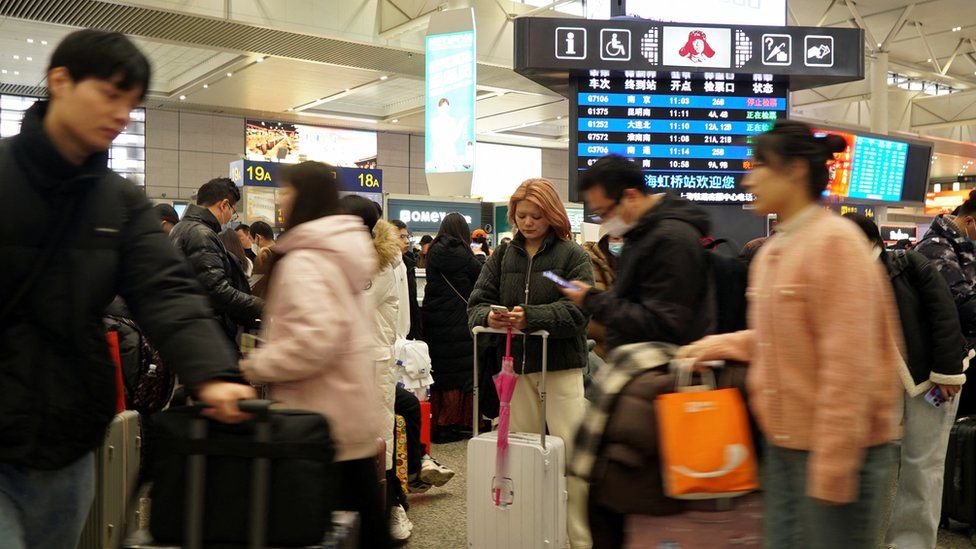-

-
-
Loading

Loading

Yuwen, a 33-year-old who has been unemployed for over six months, expressed his reluctance to go home for the Chinese New Year due to the pressure he faces from relatives about his job situation. Many of China's internal migrants, who number around 380 million, typically only return home once a year for the Lunar New Year. This mass migration, known as "chunyun," is the largest annual migration globally, with a projected nine billion trips for the Year of the Dragon. Yuwen fears the scrutiny he will face from relatives, particularly regarding his unemployment. To avoid this, he plans to lie and tell them he still has his old job. Instead of the usual week-long stay, he will only spend three days with his relatives. Yuwen's situation is not unique, as many young people have expressed on social media platforms that they will not go home for the festival, especially if they are recently unemployed. Unemployment has become a significant issue in China, particularly among city-dwellers aged 16 to 24. Official data released in June 2023 indicated that more than one in five young people in this age group were unemployed. While the figure now stands at 14.9%, it excludes students. The Chinese economy, which experienced rapid growth for decades, is now facing challenges. The anticipated post-Covid recovery has not materialized, the real estate market has crashed, and local government debts continue to rise. Investor confidence is also waning due to concerns about the Chinese leadership's focus on party control over economic development and deteriorating relations with the West. Yuwen is a victim of the clampdown on private enterprises in China. In 2014, he pursued a graduate degree in Chinese language education in Beijing, taking advantage of President Xi Jinping's Belt and Road Initiative. After graduating, he found a job at a private tutoring company, but in July 2021, the Chinese government banned for-profit tutoring, leading to the collapse of the tutoring industry. Yuwen then joined a big tech company but lost his job after five months due to regulatory crackdowns on the tech industry and US threats of sanctions against Chinese tech companies. Despite sending out his CV over 1,000 times in the last six months, Yuwen has not received any job offers. He has adjusted his salary expectations but continues to face difficulties. In contrast, fitness trainer Qingfeng has decided not to go home for the Chinese New Year. After leaving the military, Qingfeng worked as a fitness instructor but struggled with the low pay in Shenzhen and eventually lost most of his savings due to stock market losses. Concerns about the economic downturn and his ability to build a customer base at the new gym have led him to spend the festival alone. Aside from economic factors, some young Chinese individuals, like Xiaoba, choose not to go home for the festival to avoid pressure from their families to get married and settle down. China's population has been shrinking, and the declining birth rate raises concerns about a shortage of young workers and an aging population. Despite government efforts to boost marriage and birth rates, young people are increasingly reluctant to marry and have children. Xiaoba plans to spend the Lunar New Year with her cat and watch the CCTV New Year's Gala at her rented flat in Shenzhen. Yuwen remains hopeful for a better Lunar New Year in the future, despite not being optimistic about the economy in 2024.